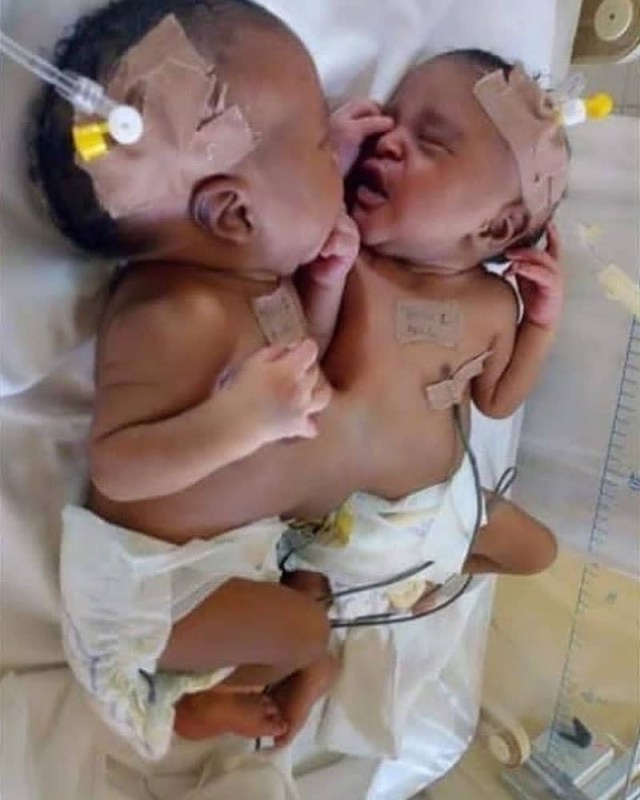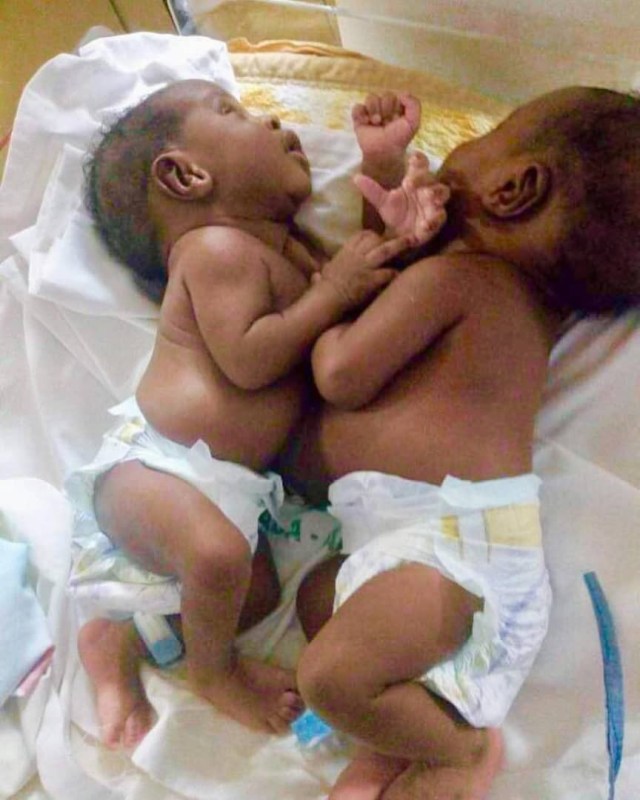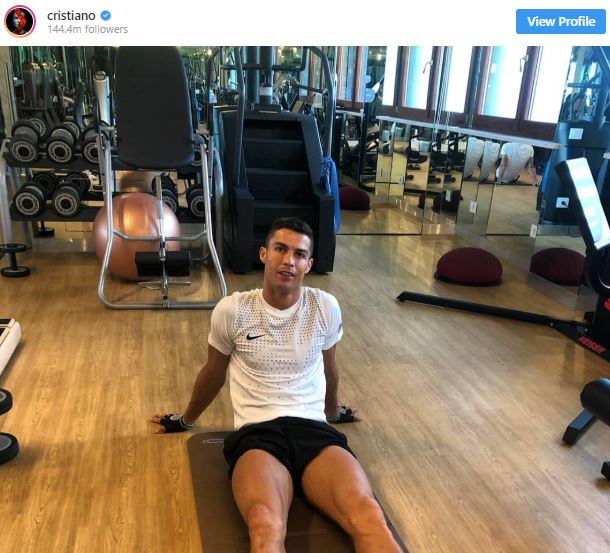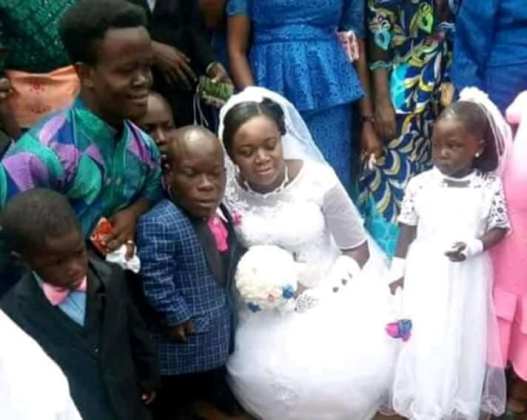THE Nigerian situation is an extreme case of class warfare whereby so long as rich or well-off individuals believe they can continue to escape discomfort, they are perfectly ok watching poverty (and insecurity) rise.
Child Labour
We congratulate each other about successful concerts and fashion events, enjoy whatever entertainment is currently available but we never stop to think how much better organized and, therefore, more pleasurable (meaning more profitable) these events could be if we finally fixed the structural issues affecting all our industries and the society at large.
We have a crop of elite women who attend conferences parading whatever First Lady makes herself available but who completely ignore the fundamental issues affecting women and girls. We have business men claiming to mentor and train young people while engineering a greedy financial or banking system that makes passive income from overcharging and exploiting businesses therefore making it virtually impossible for these same “mentees” to survive longer than two or three years.
Attention and accolades
The best part of this, from the perspective of the class warfare winners, is that Nigerians applaud and encourage their oppressors, lavishing them with attention and accolades. Each of us, lost in our personal, individual struggles fails to truly connect the dots between the collapse of public administration in Nigeria and the hardship we all encounter at various levels. This journey to self-destruction only intensifies with time: the stakes get higher and higher, poverty, violence and suffering are exploding all around us and we choose to pretend there is nothing we can do.
We normalize injustice, blaming so-called culture and traditions, weak institutions etc. as if people like you and I weren’t responsible for upholding those practices or for corrupting those structures. If we do some soul searching, we are sure to find that from top to bottom each one of us is guilty of encouraging some corrupt practice or the other, some form of injustice and chaos. According to UNICEF the majority of the street children in Africa can be found in Nigeria, particularly in the North where almajiri children are victims of all manner of abuse and deprivation.
When Zainab Ahmad, the Minister of Finance, mentioned the idea of religious leaders talking to their congregations about family planning, it was precisely because population pressure is a danger to Nigeria’s already overstretched and underfunded public services. We have turned religion and tradition into weapons, refusing rational thought and creativity, while, ironically, the “smaller” African countries we look down on continue to leave us behind. Senegal, a majority Muslim country passed a number of laws protecting women in polygamous marriages: upon marriage Senegalese men are required by law to “tick” a box identifying whether they choose a monogamous marriage, or a polygamous marriage with several sub-options (one wife, two wives or a maximum of four wives).
A man who marries a woman and states he intends to be monogamous can be sued by his wife if he tries to introduce the notion of a second wife without her consent. He risks a six months jail term and 500, 000 CFA fine. A woman who finds out her “co-wives” and their children receive greater care or financial benefits than she does can also seek redress from the courts. The Senegalese constitution recognizes male and female equality: so what is wrong with the Nigerian National Assembly?
Islam practiced in Senegal is the same as in Nigeria where Sunni Muslims are the majority, so nothing more than choice stops Nigerian leaders from installing progressive laws. As for Nigerian women, some of the most vibrant and well-educated on the continent, it is stunning to find a number of us are still so passive on political issues. What stops Nigeria from boasting of as many female parliamentarians as Rwanda or even Senegal? Nothing more than elite selfishness: the Nigerian women who are allowed into the boys club are those who seek political power with no pro-people ideology to justify their quest and the rest of us are turned into willing sycophants when we applaud and endorse such individuals.
It’s too easy to blame every government for the Nigerian conundrum without stopping to think of the role we play in upholding injustice, mediocrity and incompetence. The 2019 contest is no different. There is no conversation on the issues. In fact, many of said issues are obscured by our unwillingness to identity corruption as the fundamental issue in Nigeria. Every issue we face circles back to corruption in one way or the other. Yet, we continue to defend the rights of corrupt people to oppress us with their money or to buy our silence, with no end in sight.
Atiku
ACCORDING to INEC, the former Vice-President, Atiku Abubakar declared he earned N60.2 million as his personal income in three years.
The PDP presidential candidate also indicated he paid N10.8 million in taxes between 2015 and 2017. Some civil society groups have come out to question this, such as Olugbenro Ogunoye, the National President of the Rebirth Nigeria Leadership and Good Governance Initiative, who claimed the amounts Atiku disclosed couldn’t even cover his “lifestyle” and first class trips for that period.
This group also mentioned the alleged “dollar rain” at the PDP convention and a network of politicians and other individuals who supposedly owe their incomes to the vice-president. “Is he trying to tell us that he gave out the equivalent of his one year income to three delegates? Then, he must have been working for ten thousand years to pull that feat” they said. Atiku supporters consistently mention his business interests in media, shipping, education, manufacturing etc. to “prove” he creates jobs.
How can all of these companies put together amount to “only” N60 million in income is the question many have raised, or more importantly, is all of that commensurate with “only” N10 million in taxes? The issue is that investigations in Nigeria rarely produce real results, therefore cheapening the entire exercise and the concepts of crime, punishment and social justice.
In Nigeria everything remains hearsay and “inconclusive” thus allowing stranger and stranger notions and happenings: will Nigeria ever successfully investigate former leaders like Korea or Brazil? The former vice-president says he earns N2 million monthly which is interesting given what his private university alone is projected to make. What a country.
Anenih
THE former PDP Board of Trustees Chairman, Mr. Tony Anenih, recently passed away. In Nigeria, it is the accepted practice to brush all scandals away, despite the lack of resolution.
While Mr. Anenih’s nearest and dearest mourn, the average Nigerian who only knew him through his reported actions leading to the 1993 annulment might still be wondering whatever happened to the December 2009 Senate report on the alleged mismanagement of billions of naira during his tenure as Minister under Obasanjo.
It was said at the time that close to N300billion in a period of 10 years (1999-2009) meant for road construction around Nigeria was unaccounted for. There is also the matter of Olu Falae’s revelation: that he received N100 million #Dasukigate money via Annenih. Only God can forgive the dead. The traumatised, impoverished living mustn’t ignore issues and questions left unanswered.
Metuh
OLISA Metuh, the former PDP National Publicity Secretary said his trial (he is in court for receiving #DasukiGate funds) was based on the APC’s desire to stop him from criticizing Buhari. The media allows people who are in court to skew the narrative, however, whether we choose to ignore this or not, for a trial there must be evidence.
What does Mr. Metuh make of the evidence the prosecution alleges links him to the funds? Why do Nigerians allow everything to be politicized to the point that eventually, all is forgotten, swept under the carpet with no real resolution? If Nigeria is to make any significant progress with the fight against corruption our society and our system must require the accused to truly prove their innocence rather than hide behind the idea of a witch-hunt.

























